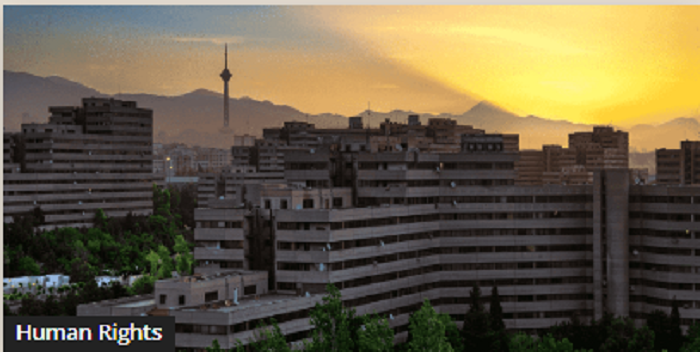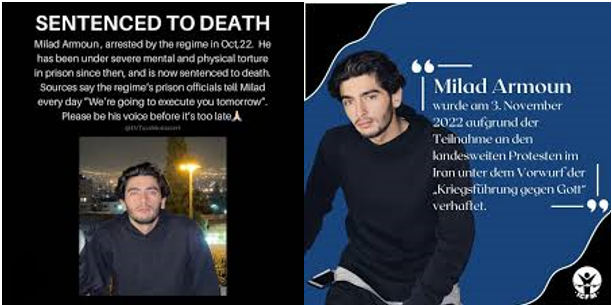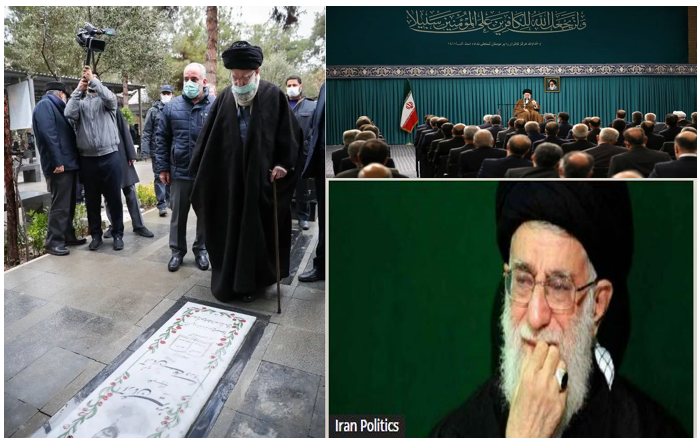

At its core, eight individuals stand accused, with Milad Armun, Alireza Kafaei, and Mohammad Mehdi Hosseini among those facing potential death penalties for charges including ‘combat with cold weapons.’
This high-profile case has its origins in September 2022. Protests erupted after the announcement of Mahsa Amini’s tragic death while in the custody of Iran’s morality patrol, known for its stringent enforcement of conservative standards, particularly among women.During these events, Arman Alivardi, a Basij member, was killed in Tehran’s Ekbatan settlement.
Though 14 were initially charged, the proceedings later narrowed down to eight primary defendants. Concerns about the legitimacy of the case have been raised by both defense lawyers and the legal consulting site ‘Dadban’, who pointed out possible fundamental flaws.This claim was further emphasized in a widely circulated video where Armun counters allegations from Tehran’s police chief, Hossein Rahimi, about possessing a knife during the event.

Reports have emerged suggesting that the defendants might have faced extreme torture, leading to potentially coerced confessions. With part of the case under the review of the notorious Judge Abolqasem Salavati of the Tehran Revolutionary Court, concerns have escalated. Further intensifying the situation was the transfer of the defendants between prisons, raising more doubts about their eventual fate.
The case has been further complicated by its association with Arman Aliverdi. Ties between Aliverdi and the regime’s supreme leader, Ali Khamenei, have come to the forefront, especially following actions to commemorate Aliverdi’s legacy, such as street renamings.
Human rights organizations, including Dadban, have unveiled reports indicating severe torture that the defendants might have undergone, resulting in their forced confessions. Such revelations have cast shadows of doubt over the fairness of the trial.

As the case continues to unravel, there is a growing global outcry. Social media activists, local protesters, and international observers argue against what appears to be a biased trial. They highlight the potential for the regime to use this case as a means to exact vengeance for Aliverdi’s death, possibly at the cost of the young protesters from Ekbatan.
Adding to the gravity of the situation, the execution of Mohammad Mehdi Karmi and Seyed Mohammad Hosseini in January 2023, allegedly wrongly accused in a similar incident, looms large in the background.
As events continue to unfold, the ‘Ekbatan town’ case serves as a poignant reflection of the challenges and controversies that often intersect with Iran’s legal system, particularly in situations linked with national security and public dissent.

MEK Iran (follow us on Twitter and Facebook), Maryam Rajavi’s on her site, Twitter & Facebook, NCRI (Twitter & Facebook), and People’s Mojahedin Organization of Iran – MEK IRAN – YouTu







